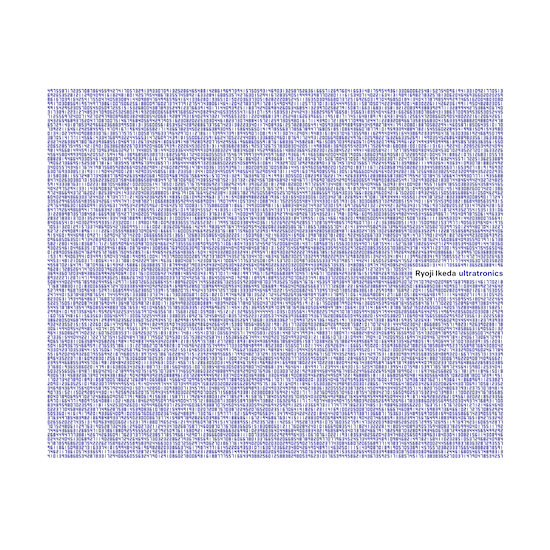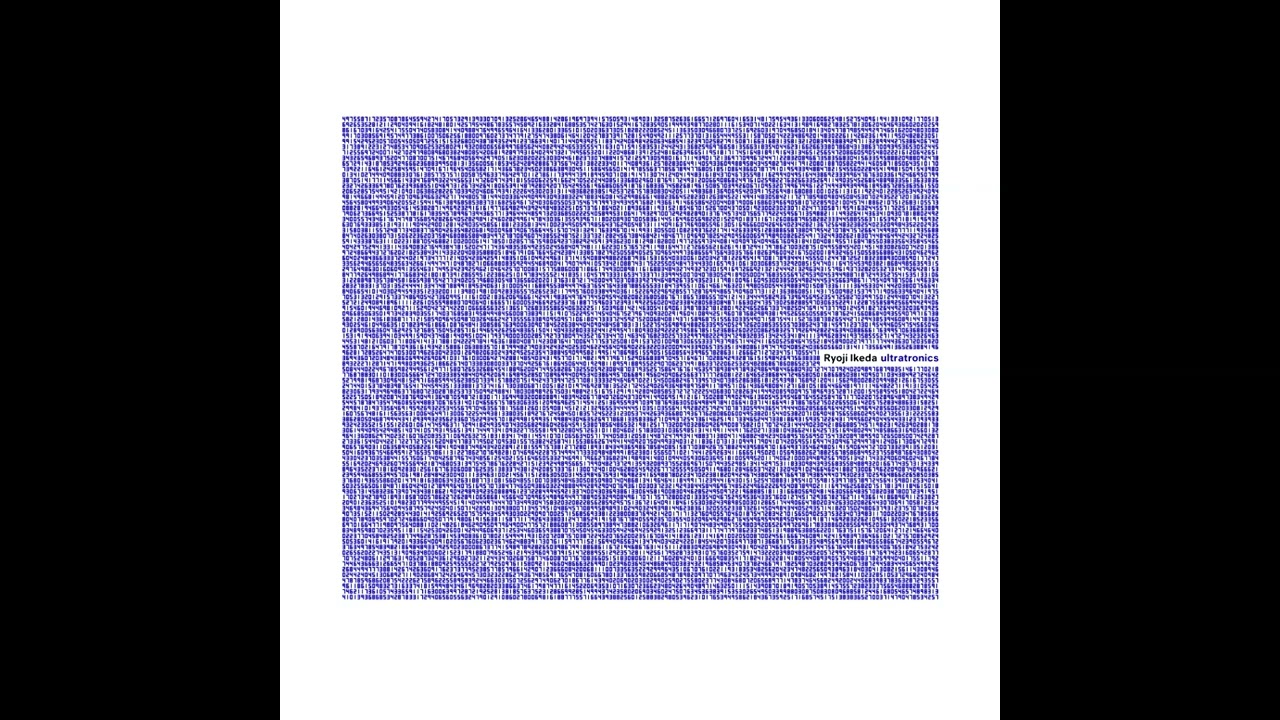Ryoji Ikeda returns with more of his signature algorithmic composition, firing through seventeen frantic tracks of glitching, minimal electronics. Ikeda’s work is as rich as ever, drawing upon the extra-musical terrain of quantum physics, genetics, and computational form to further express the rhythmic potential of data. For all the heady intellectualism of its source material, however, Ultratronics is a surprisingly approachable work, distilling its already limited sonic palette – we are very much in beeps and bleeps territory here – into an album that, at times at least, could rub shoulders with more straightforward breeds of IDM.
Some clear compositional choices amplify such accessibility. The inclusion of both a defined, regular kick, and the recurring stream of robot voices, serves to locate the other less restrained elements into a more logical musical framework – something that though incredibly well-executed, might perturb lovers of Ikeda’s more abstract installation work. Recorded and composed over a period spanning some thirty-three years, the album exists as a fragmentary melting pot of the various sonic approaches and interests Ikeda has explored throughout his career. Though the breakneck glitches, granular noise, and speaker-trashing bass of his prior work all make an appearance, Ultratronics soon reveals itself to be a different beast entirely.
Both less glacial and less chaotic than expected, the album surprises not for its often challenging rhythmic potential, but for its adherence to well-known tropes. Tracks like ‘Ultratronics 07’ offer a wonderfully aggressive take on industrial music, replete with an almost nostalgic glow – if someone told me this was a new Justin Broderick side project I could easily be convinced. And whilst the intense abstraction of his installation work is still present, the inclusion of more straightforward, rather sensible beat-driven pieces is either a surprising left turn or a bit of a disappointment.
Despite courting unexpected normalcy, this is nonetheless a superbly produced artefact. The album’s industrial edges are as in-your-face as the genre demands, and its abstract sonifications as challenging as ever. Whats more, moving between these two forms of intensity is a deeply rewarding experience – one moment the listener is being pummelled by distorted, bit-crushed beats, and the next their perseverance is being tested by several minutes of fluctuating, ear-piercing drones operating at the sort of frequencies that drive dogs wild.
Not for the faint of heart, Ultratronics is a fascinating overview of Ikeda’s practice, an album that manages to do a huge amount with a very sparse toolkit. I suspect some may question the potentially incongruous moods that battle within, but Ikeda successfully ties two decades of ideas together through the prism of his singular, and unrelenting compositional approach.



